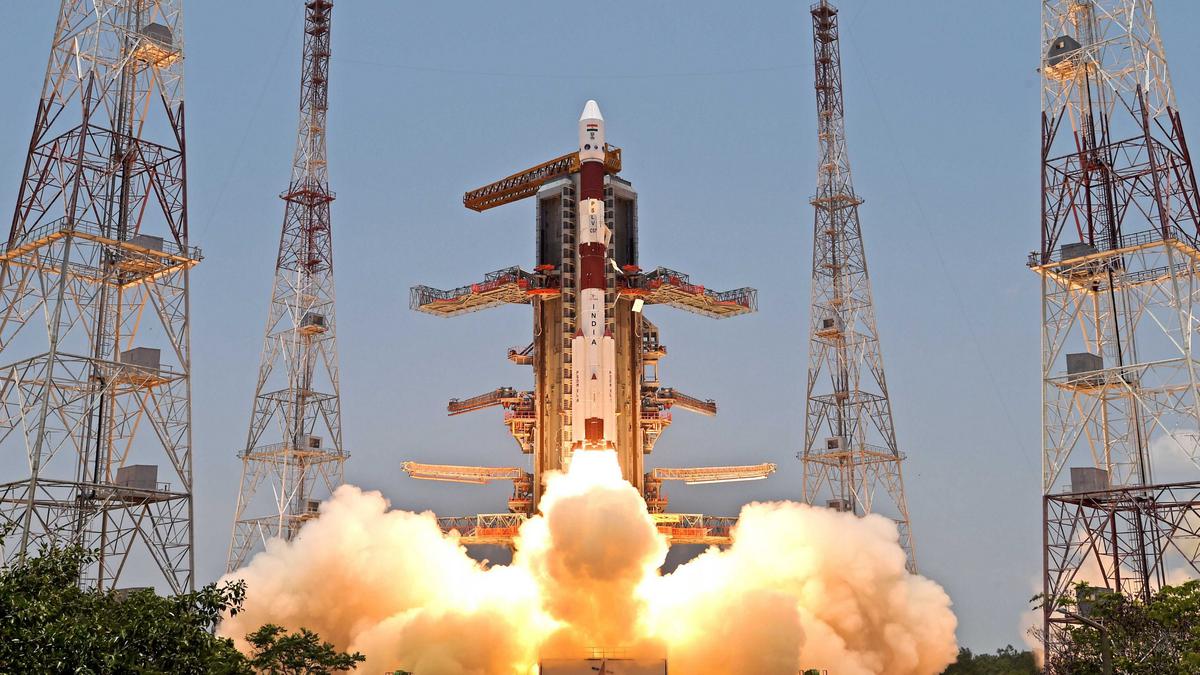
ISRO to launch XPoSat and 10 other payloads on January 1
The Hindu
ISRO's PSLV-C58 mission to launch XPoSAT satellite and 10 payloads from Satish Dhawan Space Centre on Jan 1, 2024.
The Indian Space Research Organisation, following a landmark 2023, will ring in the new year with the launch of the PSLV-C58 X-ray Polarimeter Satellite (XPoSat) mission on January 1, 2024.
The PSLV will launch XPoSat and 10 more payloads. The rocket will lift off at 9.10 a.m. from the Satish Dhawan Space Centre in Sriharikota.
“ISRO’s PSLV-C58 Mission is to launch XPoSAT Satellite into an Eastward low inclination orbit. After injection of XPoSAT, the PS4 stage will be re-started twice to reduce the orbit into a 350 km circular orbit to maintain in 3-axis stabilized mode for Orbital Platform experiments. The PSLV Orbital Experimental Module-3 experiment will be executed meeting the objective of 10 identified payloads, supplied by ISRO and IN-SPACe,” states ISRO on the upcoming mission.
XPoSat is the first dedicated scientific satellite from ISRO to carry out research in space-based polarisation measurements of X-ray emission from celestial sources. It carries two payloads, namely POLIX (Polarimeter Instrument in X-rays) and XSPECT (X-ray Spectroscopy and Timing). POLIX has been developed by Raman Research Institute and XSPECT is by Space Astronomy Group of URSC, Bengaluru.
The PSLV will also launch 10 payloads developed by start-ups, education institutions and ISRO centres.
They are the Radiation Shielding Experimental Module (RSEM) by TakeMe2Space, Women Engineered Satellite (WESAT) by LBS Institute of Technology for Women, BeliefSa-t0 Amateur radio satellite by K.J. Somaiya Institute of Technology, Green Impulse TrAnsmitter (GITA) by Inspecity Space Labs Private Limited, Launching Expeditions for Aspiring Technologies -Technology Demonstrator (LEAP-TD) by Dhruva Space Private Limited, RUDRA 0.3 HPGP by Bellatrix Aerospace Private Limited, ARKA-200 by Bellatrix Aerospace Private Limited, Dust Experiment (DEX) by PRL, ISRO Fuel cell Power System (FCPS) by VSSC, ISRO and Si-based High Energy cell by VSSC, ISRO.
